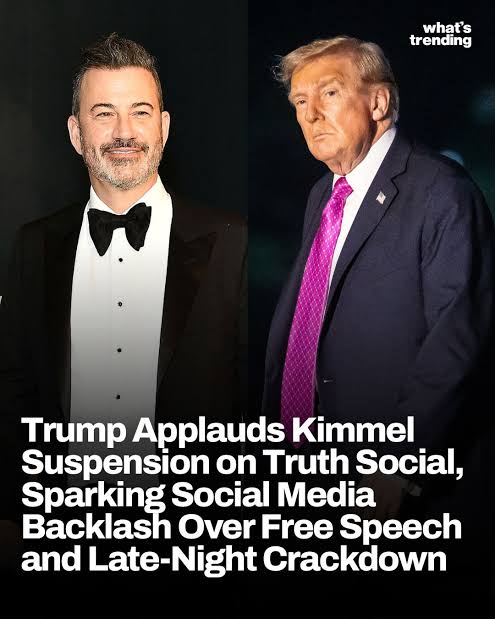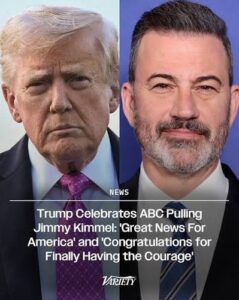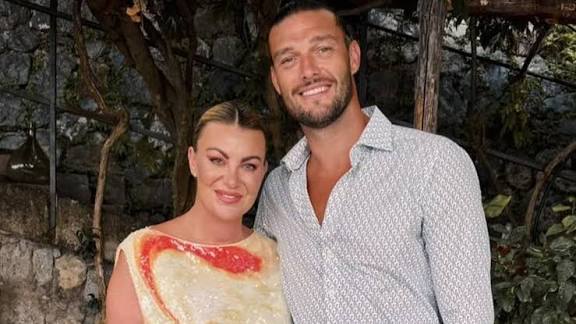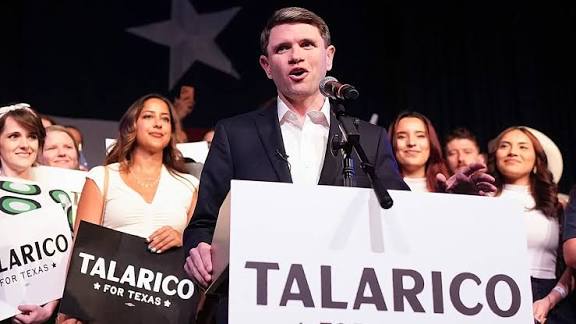Free Speech or Censorship: ABC Suspends Kimmel,Trump Applauds

High-profile politicians and artists are criticizing Jimmy Kimmel’s show as an attack on free speech . Today we will discuss about Free Speech or Censorship: ABC Suspends Kimmel,Trump Applauds
Free Speech or Censorship: ABC Suspends Kimmel,Trump Applauds
In mid-September 2025, ABC, owned by The Walt Disney Co., made the dramatic decision to suspend indefinitely its late-night talk show “Jimmy Kimmel Live!” following controversial remarks made by its host Jimmy Kimmel. What followed was a fierce debate about the boundary between free speech and censorship, government influence on media, and whether networks can, or should, be forced to moderate or punish speech that certain segments of the public and government find objectionable.
The decision prompted strong reactions: President Donald Trump applauded the suspension, while critics — including political opponents, media organizations, legal scholars, and some unions — condemned it as a dangerous precedent. This article explores what led to the suspension, the legal and constitutional issues involved, the responses from various stakeholders, and what this episode may mean for free speech, media regulation, and political culture in the U.S.
What Happened

The Triggering Remarks
On September 15, 2025, Jimmy Kimmel delivered a monologue on Jimmy Kimmel Live! in which he made remarks about the recent assassination of conservative activist Charlie Kirk. Kimmel criticized what he saw as efforts by MAGA-aligned groups to leverage Kirk’s death for political advantage. Specifically, he said:
“The MAGA gang [is] desperately trying to characterize this kid who murdered Charlie Kirk as anything other than one of them and doing everything they can to score political points from it.”
He also mocked President Trump’s response to Kirk’s death, contrasting what he deemed a performative grief with attention being paid to other matters.
The Immediate Fallout
Regulatory Pressure: FCC Chairman Brendan Carr, a Trump appointee, condemned Kimmel’s remarks, calling them “offensive” and suggesting that broadcasters airing such content might face regulatory consequences.
Local Affiliates’ Reaction: Major station groups owning ABC affiliates, such as Nexstar and Sinclair, responded. Nexstar declared it would pull Kimmel from its ABC affiliate stations, decrying the remarks as offensive. Sinclair demanded that Kimmel issue an apology to Kirk’s family and make a “meaningful personal donation” to the Kirk family or Turning Point USA.
ABC’s Decision: Under this combination of public, regulatory, and affiliate pressure, ABC announced that Jimmy Kimmel Live! would be pulled off the air indefinitely.
Trump’s Reaction
President Donald Trump came out in support of the suspension, framing it as overdue and saying that Kimmel had “very bad ratings” and was “not a talented person.” He also urged other networks — specifically NBC — to similarly remove their late-night hosts who frequently criticize him (Jimmy Fallon, Seth Meyers).
Legal, Ethical, and Constitutional Stakes
Free Speech & the First Amendment
In the U.S., freedom of speech is enshrined in the First Amendment, which guards against government suppression of speech. However, this protection is not absolute: speech can be restricted in certain circumstances (e.g., obscenity, incitement to imminent lawless action, etc.). The key question in this case is whether the actions taken — the regulatory pressure, the pulling of broadcasts, and the indefinite suspension — amount to government coercion rather than permissible professional consequence.
Government Coercion vs. Private Decision: If a network faces threats from a regulatory body (like the FCC) or must alter its content out of fear of losing broadcasting licenses, that may cross into coercion. Critics argue that Carr’s statements and the possibility of license revocation are more than mere opinion — they are a regulatory threat.
Precedents & Legal Barriers: Historically courts have protected even strongly political or controversial speech, so long as it does not violate established exceptions. The complaint from ABC affiliates or the FCC would need to show some legal standard breached; merely disagreeing with speech is rarely enough.
Network Affiliates & Marketplace of Ideas
Networks and affiliate stations typically have broad editorial discretion. The entity that owns the station or network can decide its programming policies, subject to legal constraints. When local affiliates pull content of their own volition, or under threat of regulatory repercussion, the situation becomes murkier: are they acting independently, or under implied government pressure?
There is also the concept of the marketplace of ideas — that speech, including that which offends, should be allowed so that the public can engage, debate, and evaluate ideas.
Ethical Journalism & Comedy
Comedy, especially late-night television, often operates with the expectation of satire, criticism, overstatement. Ethical questions arise:
Is it responsible for comedians to make claims or analogies that could mislead?
Should there be better sensitivity toward victims and political polarization?
But also: should the threat of regulatory sanction or station pull-out force comedians/writers to self-censor?
Reactions from Stakeholders
Political Figures & Parties
Democrats and Free Speech Advocates: Many Democratic lawmakers saw the suspension as an attack on free speech and a sign of creeping authoritarianism. Some demanded resignations (particularly of FCC Chair Carr) or called for legislation to protect media figures from political retaliation.
Barack Obama: The former president condemned what he termed “government coercion,” arguing that threatening regulatory action against media companies in response to speech is precisely what the First Amendment was designed to prevent.
FCC Commissioner Anna Gomez (Democratic appointee): Warned that letting such pressure stand would risk the foundation of free expression — especially for broadcasters needing FCC licenses, which are essential for their operations. She asserted that withdrawing or threatening licenses due to speech one doesn’t like is constitutionally suspect. Society
Unions (Writers, Actors): They strongly criticized the suspension as an assault on the First Amendment and artistic expression.
Journalists & Legal Experts: Some emphasized that while Kimmel’s remarks might be seen by some as offensive or inflammatory, they are nonetheless protected speech. The concern is not just this case, but the potential chilling effect: if speech leads to regulatory threats, broadcasters may avoid politically sensitive content altogether.
Broadcasters & Corporate Interests
Nexstar & Sinclair: These station groups acted quickly, pulling the show from their local stations. Whether they did so independently, or in expectation of regulatory favor, is a point of contention.
ABC / Disney: By choosing to suspend Kimmel, ABC/Disney signaled that they deem the cost of continuing the show — regulatory risk, affiliate backlash, public controversy — higher than the cost of responding to pressure.
Arguments: Free Speech vs. Censorship
Below are the main arguments each side is putting forward.
Arguments for the Suspension (or for Regulating Such Speech)
Accountability for Public Speech: Because Kimmel is a public personality with wide reach, some argue he must be held accountable for statements that may mischaracterize or malign people, especially after a tragedy.
Community Standards & Sensitivity: There is a belief that certain remarks are disrespectful to victims and families, or politically opportunistic — and that media should be sensitive to this.
Regulatory Responsibility & Broadcast Licenses: The FCC has a mandate to ensure broadcasting serves the public interest. If content is seen as violating that, the FCC may intervene (though what constitutes “public interest” is itself contested).
Political Balance & Avoiding Defamation: Some argue that very outspoken critics have to ensure they adhere to factual standards, especially when accusing political groups of exploiting tragedy.
Arguments Against the Suspension (or for Protecting the Speech)
First Amendment Protections: Speech, even when harsh, critical, satirical, or offensive, is generally protected, especially political speech. The government cannot penalize speech simply because it is unpopular or harsh.
Chilling Effect: Threats of regulatory action or loss of broadcast license may dissuade not only Kimmel but others from speaking freely, undermining democratic debate.
Precedent & Abuse of Power: Observers warn that this sets a precedent: any critical remarks toward political actors could be punished, making the press/media subservient to political power.
Editorial Discretion & Corporate Oversight: Networks and hosts are already subject to public opinion, advertisers, competition — adding government pressure adds an extra layer that may distort content.
Constitutional & Legal Precedent
The First Amendment does not allow most forms of government censorship of speech, particularly political speech. Laws and actions that impose sanctions (legal, regulatory, financial) because speech is critical of government or political actors are heavily scrutinized.
Courts have generally held that broadcast licenses are privileges, granted under regulations, but any revocation or threat of revocation due to content must be carefully constrained and justified under law.
There is precedent of regulatory bodies issuing fines or sanctions for obscene or indecent speech, but not for purely political commentary.
Legal scholars point out that pushing for license revocation for content that is merely offensive, without more, is likely to be challenged in courts, and there is uncertainty whether such threats would survive constitutional review.
Implications & What’s at Stake
For Media & Broadcasters
Self‐censorship: Media organizations may become more cautious, reducing political commentary or critique to avoid running afoul of regulatory bodies or public backlash.
Editorial Tightrope: They may balance more carefully between provocative content (which draws audience) and the risk of regulatory or affiliate pressures.
Station Groups’ Power: Local affiliates and station owners may wield more power, especially if they can threaten to pull shows.
For Political & Regulatory Landscape
Increased Regulation Risk: If the FCC or similar regulatory bodies are seen as aligned with or influenced by particular political actors, their decisions may be viewed as partisan tools.
Legislative Responses: Some Democrats and free-speech advocates are likely to pursue legislation to reinforce protections for speech critical of government, especially regulation that threatens to punish such speech.
Public Trust & Polarization: Actions like this may deepen public distrust in media institutions and escalate polarization, with each side accusing the other of censorship or cancel culture.
For Free Speech Norms & Democracy
Limits of Satire & Comedy: This incident raises questions about the boundaries of satire, especially when dealing with sensitive topics like political assassination.
Role of Comedy as Critique: Late-night comedy has long been a forum for political critique. Restricting it (or penalizing it) can reduce one means by which society holds leaders (and institutions) to account.
Chilling Effect & Slippery Slope: If the suspension stands without strong legal pushback, future speech may be chilled; individuals or networks may preemptively silence themselves to avoid controversies.
Criticisms & Counterarguments
Some supporters of the suspension argue that Kimmel’s remarks were not just satire but verged into blame, or implied political alignment between Kirk’s murderer and MAGA, which some see as an unfair inference. They may argue that with great platform comes responsibility.
On the other hand, critics of the decision say that the response was disproportionate. If speech is protected, then ABC should defend its host’s right to speech unless the speech violates law. They also point out that holding speech to standards of decency is historically a fraught area.
Global Comparisons & Perspectives
While this incident is U.S.-centric, similar issues echo globally:
Where governments have regulatory authorities over media, speech critical of the government or its allies often leads to pressure, censorship, or suppression.
Democracies differ in how they balance free speech and regulation; for example, some countries impose laws against hate speech, defamation, or incitement that are stricter than in the U.S.
The norms around broadcast licenses and regulatory pressures vary: in some nations, regulatory bodies are more independent; in others, political control is more visible.
Where Things Likely Go from Here
Legal Challenges / Court Cases: It is possible that ABC, Kimmel, or civil liberties groups will challenge regulatory threats (especially those involving FCC license risk) in court. The outcome would help clarify how far FCC authority involving “public interest” can reach.
Congressional Action: Some lawmakers, especially in the Democratic camp, are reportedly considering bills to protect media figures from political retaliation. These could involve rules limiting regulatory threats, or strengthening protections for broadcasters.
Public Debate & Media Behavior: There will likely be more public conversation about whether this sets a precedent for government oversight or suppression. Media companies may also revisit how they respond to controversial speech, balancing risk versus reputation.
Political Exploitation: President Trump’s praise of the suspension, and his calls for other hosts to be canceled, raise questions about political motivations. If this kind of response becomes routine, it’s likely to amplify debates over whether media criticism of political figures is treated differently depending on who holds power.
Conclusion
The suspension of “Jimmy Kimmel Live!” by ABC in retaliation to Kimmel’s monologue about Charlie Kirk has thrust the U.S. into a renewed debate about free speech, censorship, regulatory overreach, and the role of media. While networks, regulators, and political leaders have obligations and interests, so too do journalists, comedians, and citizens in preserving a space where speech — including uncomfortable or provocative speech — can occur without fear of punitive suppression.
Ultimately, whether this episode will be remembered as a watershed in free speech protection or as a troubling turn toward censorship depends largely on what comes next: how courts rule, how lawmakers respond, and whether media institutions stand up to pressure or cave in. The stakes are high: free speech is both a legal guarantee and a societal norm; once eroded, restoring its full force is difficult.
How useful was this post?
Click on a star to rate it!
Average rating 0 / 5. Vote count: 0
No votes so far! Be the first to rate this post.
About the Author
usa5911.com
Administrator
Hi, I’m Gurdeep Singh, a professional content writer from India with over 3 years of experience in the field. I specialize in covering U.S. politics, delivering timely and engaging content tailored specifically for an American audience. Along with my dedicated team, we track and report on all the latest political trends, news, and in-depth analysis shaping the United States today. Our goal is to provide clear, factual, and compelling content that keeps readers informed and engaged with the ever-changing political landscape.




